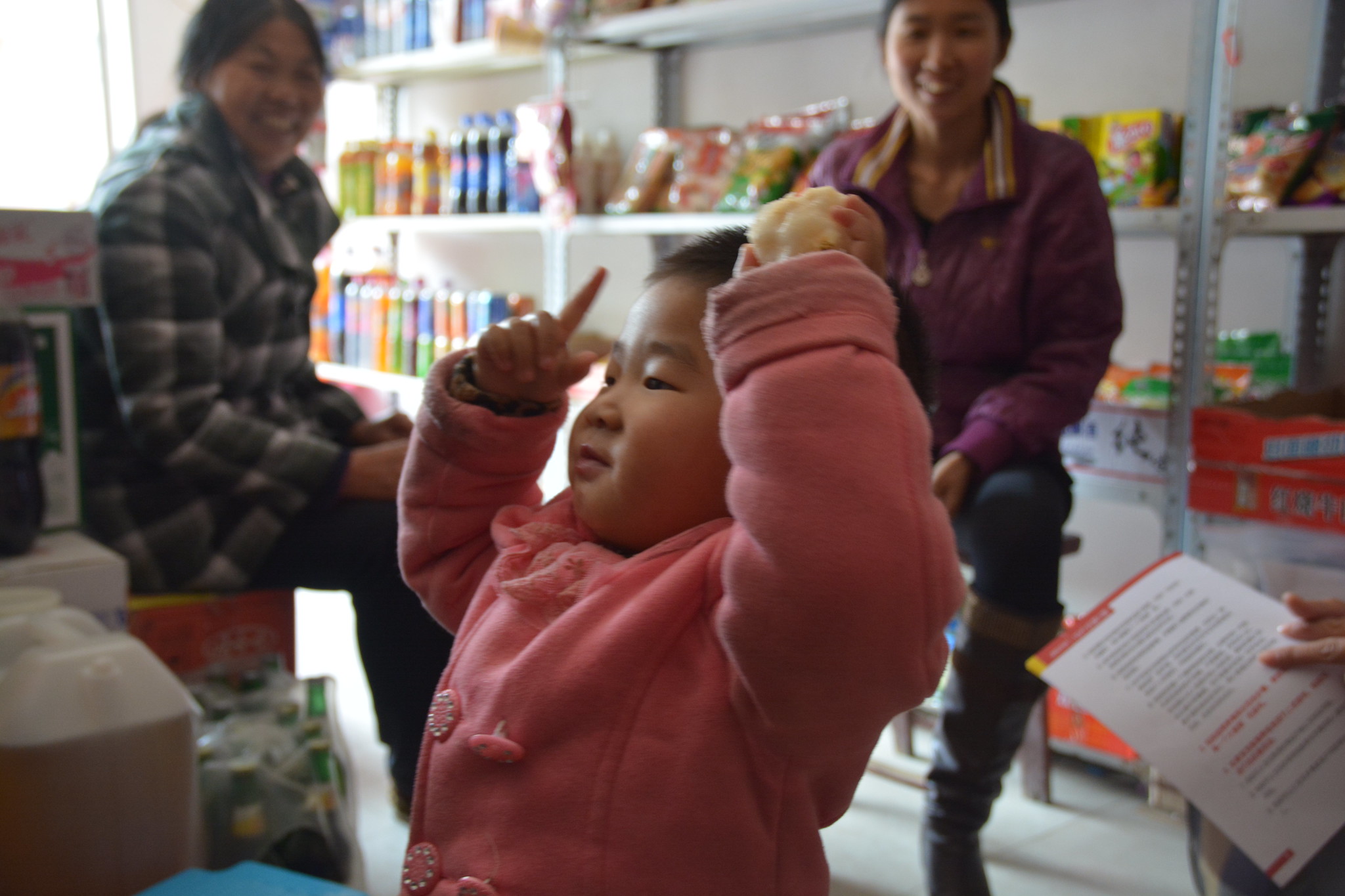No Easy Road
No Easy Road
REAP researcher Zhang Nianrui describes a-day-in-the-life of a pair of parenting trainers as she joins them on a rough journey to the remote village homes of the families under their charge for the pilot project.
QINLING MOUNTAINS -- With rain pouring heavily one day in late November, we hastily finished our breakfast and headed to Shagouhe Village and Heigouhe Village, deep in the Qinling Mountains. Despite the dangerous conditions from the slippery roads, we had to go: we had already promised the families in the parenting project that we would be there, and the children were waiting for us. “Let’s go!” I said to Yanshu Xia, one of the parenting trainers. Yanshu nodded in agreement.
 |
|
When the parenting trainers first arrived, some families were suspicious of the trainers' motives. Now, they look forward to the weekly visits. |
The mountain roads are very narrow, only two meters wide. Li Bo, another family planning worker, clutched at the steering wheel, trying to stay in control of the car as we kept asking him to drive more slowly. Finally, we arrived at Shagouhe Village and went to our first stop – the home of 26-month-old Cao Yibo. Cao, who is being raised by his 60-year-old grandmother, was only 6-months-old when both his parents went to work at a city 300 kilometers away. Now they only come home once a year for the New Year holiday.
Upon our arrival, Cao’s grandmother was sewing his pants. She was surprised to see two drenched family planning workers at her door, and was moved that we still came in such harsh weather conditions. She told us that when the project first started, she thought it was too good to be true – getting visits and toy deliveries every week – and she was afraid we would start asking her for money. But the family planning workers insisted the toys were free, explaining they would bring new toys each week and collect the previous week’s toys. Cao only receives only one or two new toys a year, when his parents return home, so a few toys keep Cao happy for a long time.
During every weekly visit, Li and Yanshu teach the grandmother, who is illiterate, how to use the toys to play with Cao. The trainers also regularly remind the grandmother that playing is beneficial to the child’s development.
On that rainy November day, the grandmother ushered the family planning workers in to sit by the fire and brought them two cups of hot water to warm their hands. Little Cao, who was playing with his toys on the floor, crawled over and sprawled himself across Yanshu’s lap – a very different reaction from their first visit when Cao was so shy he would not look her in the eye. “Look Cao!” Yanshu said, “Look at the new toys from Auntie – do you like them?” In the meantime, Li took out the materials for the week and began patiently teaching the grandmother how to play that week’s activities with the toddler. “You must do this activity with the child every day,” Li said to Grandma Cao. “We will come back next week to check on his progress.”
As the two parenting trainers prepared to leave, the grandmother tried to keep them for dinner, but the pair still had to visit three other children in the villages. Cao, grasping a toy in one hand, used his free hand to wave goodbye.
The three other children in the village who are assigned to the trainers’ caseload are in similar situations to Cao. Their parents are migrant laborers; they are being raised by their grandmothers; and only see their parents during the New Year’s holiday.
In these mountainous villages, the grandparents use traditional ways of parenting to raise the children. The older generation is not as attuned to modern parenting practices as its younger cohort, and many grandparents have a limited understanding of child development. Li and Yanshu aim to change this with their weekly visits, by teaching the grandparents how to foster child development.
When the two trainers finished up their visit with the last child in Shagouhe Village, it was already past noon and still pouring rain. There was not enough time to return to the family planning center for a lunch break; children in Heigouhe Village were still waiting for them. Heigouhe Village is located at the top of a mountain, so if the trainers were to get a late start, it would be too dark for them to return home safely. Their car shuddered and started, then we slowly disappeared into the rain and fog.
